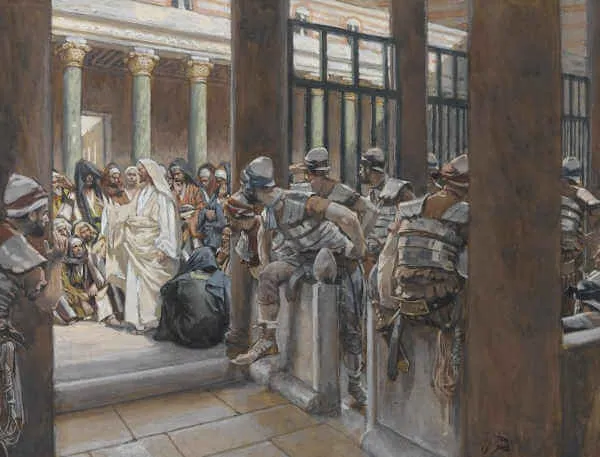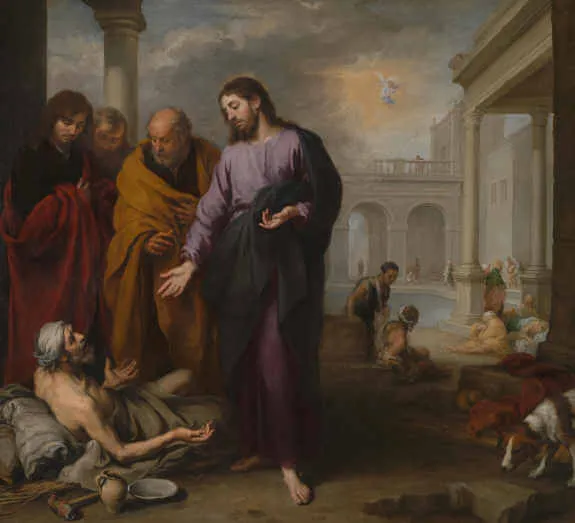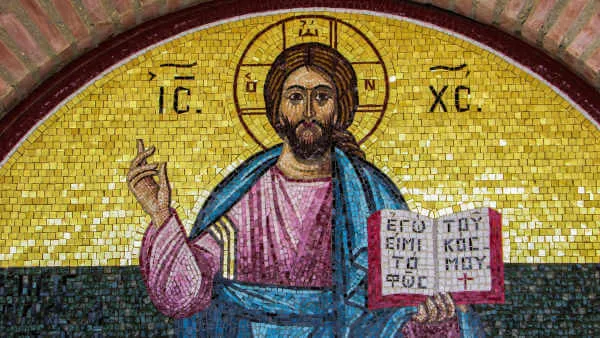John 7:1-2;10
The New Moses
Jesus moved about within Galilee; he did not wish to travel in Judea, because the Jews were trying to kill him. But the Jewish feast of Tabernacles was near. But when his brothers had gone up to the feast, he himself also went up, not openly but as it were in secret.
Reflection:
The Jewish Feast of Tabernacles was one of three great feasts during which the people made a pilgrimage to the Temple in Jerusalem to commemorate God’s saving action in their lives. This particular feast was to commemorate the 40 years that the Israelites traveled through the desert and dwelt in tents, or booths, as they wandered and were led by Moses. Therefore, the feast is also referred to as the “Feast of Booths.” During the seven days of this feast, people would set up tents (booths) around the Temple area and live in them to commemorate the journey of their ancestors.
In the Gospel passage quoted above, we read that Jesus went up to the feast secretly. Saint Augustine explains that this means that though Jesus was present, the full revelation of His divine identity was hidden from many. He was physically there, but many did not know Who He was.
That particular year, when the feast was half over, Jesus appeared in the Temple area and began to teach. Many were amazed at His words, and others thought He was possessed. After teaching the people, there was much disagreement among them about our Lord’s identity. Jesus said to them, “You know me and also know where I am from. Yet I did not come on my own, but the one who sent me, whom you do not know, is true. I know him, because I am from him, and he sent me.” In that statement, Jesus essentially was saying that among those listening to Him, some had come to faith in Him and discovered His true identity as the Messiah, while others lacked the gift of faith and remained blind to Him. To them, His divine essence remained a secret.
In a symbolic way, Jesus’ presence at the Feast of Tabernacles reveals Him as the new Moses. It was Moses who led the people through the desert for 40 years toward the promised land while they dwelt in tents. Our Lord now took on that role of leading the people who were commemorating this 40-year journey by appearing in the Temple and pointing the people to Heaven, the true Promised Land.
Today, our Lord continues to lead His people through the journey of life by coming to each of us to teach us and to reveal His divine presence. Some listen and believe and continue on the journey. To them, the secrets of our Lord are revealed. Others do not believe and, as a result of their lack of faith, fail to discover the hidden presence of our Lord all around them.
Reflect, today, upon the image of Jesus coming to you during your long journey through the desert of this life. He initially comes to you in secret, veiled in His true essence. As He teaches you, He desires to lift that veil and reveal to You His true glory. He desires that you dwell with Him through prayer and remain attentive to His Word. As you gaze upon our Lord, reflect upon the question of how clearly you hear Him speak each day. He is here, with you always. But are you with Him? Do you hear Him, believe in Him, follow Him and serve Him? Do you allow Him to lead you every day toward His promises of new life? Allow our Lord to pitch His tent next to yours so that You will daily be attentive to His teaching and be led by Him to the glories of Heaven.
Source: https://catholic-daily-reflections.com/2025/04/03/the-new-moses-3/













